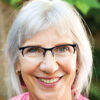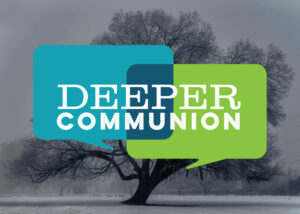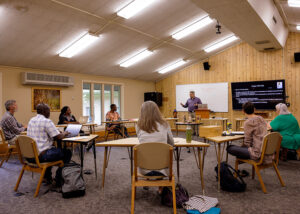“What this is about,” the counsellor said kindly, “is the end. How your mother faces the end—her dying—impacts everyone else in the family. How you and your siblings respond to your mother affects each person as well. You are all in this together.”
I had sought counselling not because my mother was terminally ill, but because she was facing a host of aging issues—vision, hearing, mobility, pain, judgment—and she and her family were disagreeing vigorously about how to deal with those issues. I was swept up in intense, swirling emotions. The counsellor’s words and her compassion brought a framework and focus to the confusion.
The end. Dying. I took a deep breath in and out, and allowed myself to settle into the reality of my mother’s end.
Questions soon followed. What does my mother’s end mean to her? More immediately, what do the multiple health challenges and increased limitations mean for her? How does she respond to pain and restrictions? What does my mother’s end mean to me? To my siblings? How do any of us face that loss? How do we care for her and care about each other in the midst of it?
With the questions, in time, came some answers. My mother is in a crisis. Her Christian faith assures her that she need not fear death, a proclamation she readily asserts. Dying, though, is another matter. Gradually losing one’s abilities, health and independence is tough, and there’s often no certainty about the timing or the degree of the losses. Her fear and frustration are understandable.
Adult children do react to the messy business of their parent’s aging. Some become intensely engaged; some pull back. Some are steadfastly patient; others, the opposite. In my case, the “bifocals” I’m wearing nearly split me apart. One set of eyes is focussed on my mother as I witness her brave journey and anticipate the yawning hole that will come when she dies. Sometimes I lament with her; other times, I’m her champion.
With another set of eyes, I see my own mortality looming in the not-too-distant future. Yoked to my mother, I wonder how I will react if and when I become old and frail. To what degree will I yield peacefully to the changes of aging? How likely is it that I will rail and resist, stirring up trouble around me?
Sadly I remember difficulties with my grandmother and great-grandmother in their final years, illustrating the persistence of family patterns. Fortunately, these memories are seasoned with wit, as when my grandmother needled her daughter, “I do like to contrary you.”
Likely there is opportunity in this crisis. Perhaps we can, as a family, learn new ways to walk towards the end. Clearly Mother is at the centre; she has physical, emotional and spiritual challenges to address. Decisions to make about health, finances and housing. By and large, these are her decisions, which others must accommodate. How she responds to these tasks affects everyone else in the family, as the counsellor said. How we respond to her, I believe, makes it easier—or harder—for her to come to terms with aging.
In the midst of the most difficult days, a Bible verse, unfamiliar to me, showed up in the lectionary readings. From Isaiah 40:11: “[God will] gather the lambs in his arms, and carry them in his bosom, and gently lead the mother sheep.” What a beautiful, comforting image!
Near the same time, I heard God’s response to my prayers, “I’ve got her covered; she’s in my hands.” I’m counting on it.
Melissa Miller (familyties@mymts.net) has a passion for helping people develop healthy, vibrant relationships with God, self and others.







Leave a Reply
You must be logged in to post a comment.